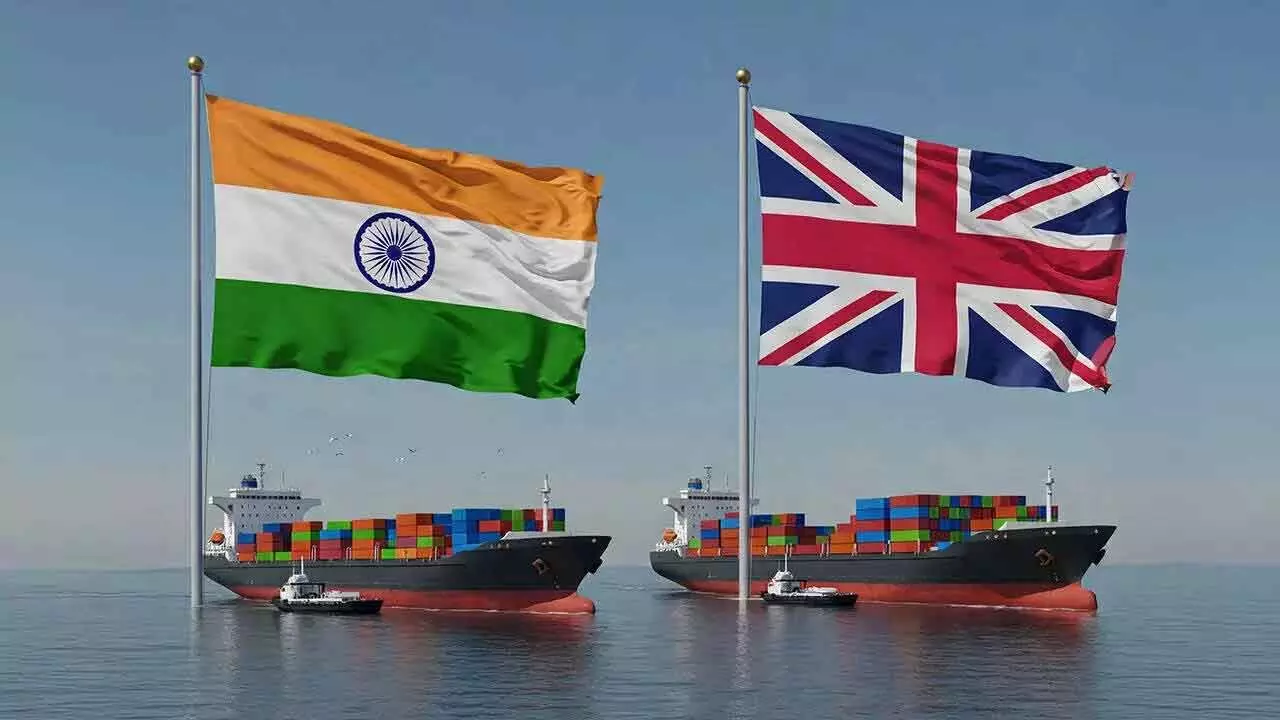India–UK FTA Symbolises The 21st Century Trade Philosophy
India–UK FTA Symbolises The 21st Century Trade Philosophy

The India–UK Free Trade Agreement (FTA) is not merely a transactional accord but a dialectical moment in the evolution of twenty-first-century trade philosophy—where national interest and moral purpose converge in a new synthesis of strategic liberalism. Presently, both countries enjoy bilateral trade that is to the tune of $60 billion, which is projected to double by 2030. India and the United Kingdom have consummated a landmark FTA, momentous not only in quantitative magnitude - encompassing reductions across 90 per cent of tariff lines - but also in its emblematic stature as a recalibration of re-globalization economic strategy. The deal is set to amplify bilateral trade by £25.5 billion, with ancillary gains to the UK’s GDP at £4.8 billion and annual wages at £2.2 billion. As a geopolitical artefact, as per Ecowrap, the agreement circumvents dependence on Chinese supply chains, sidesteps US protectionism, and redefines Britain’s post-Brexit economic lexicon. The FTA, spanning goods, services, and technology, seeks to foster inclusive growth, resilient supply chains, and employment generation.
Liberalisation in several sectors in the United Kingdom like IT, finance, education, and consumer goods unlocks u-intensive export potential in Indian industries such as textiles, toys, marine products, and auto components. While immigration policy remains static, the accord enables select professional mobility - around 1800-2000 visas annually for chefs, musicians, and yogis—fusing economic pragmatism with cultural diplomacy. They will ensure expanded access to telecom and renewables, digital trade facilitation, emphasis on green goods, reciprocal social security arrangements, and opening the way for UK businesses to bid in government procurement as class 2 supplier in services, construction and green infrastructure. India also advances negotiations with the EU, Australia, Peru, Sri Lanka, and Oman, and reviews existing pacts with South Korea and ASEAN—signalling a broader strategic reconstitution of its global trade architecture. In 2024, South East England and London led the country’s imports from India, while Indian services exports to the UK reached $13.25 billion in 2022, mainly delivered remotely. Remarkably, the UK remains a key investor in India, with $34.79 billion FDI, focused on finance, tech, and infrastructure.
The agreement, as per PHDCCI, will further catalyse investment and boost employment opportunities in the country. The FTA is expected to benefit SMEs, especially in labour-intensive sectors, through duty-free access, regulatory simplification, and improved mobility. India is going from strength to strength as a powerhouse of innovation and entrepreneurship. Building on deep cultural ties, this agreement opens new doors for SMEs in both nations to expand, collaborate, and access fresh markets. With over one million members across the UK and India, organisations like Tide are set to help small businesses make the most of this milestone. No doubt, the agreement is a major step forward for businesses and entrepreneurs. India is going from strength to strength as a powerhouse of innovation and entrepreneurship. This augurs well for India as it pursues its Viksit Bharat@2047 goal with a purposeful and unwavering zest.

